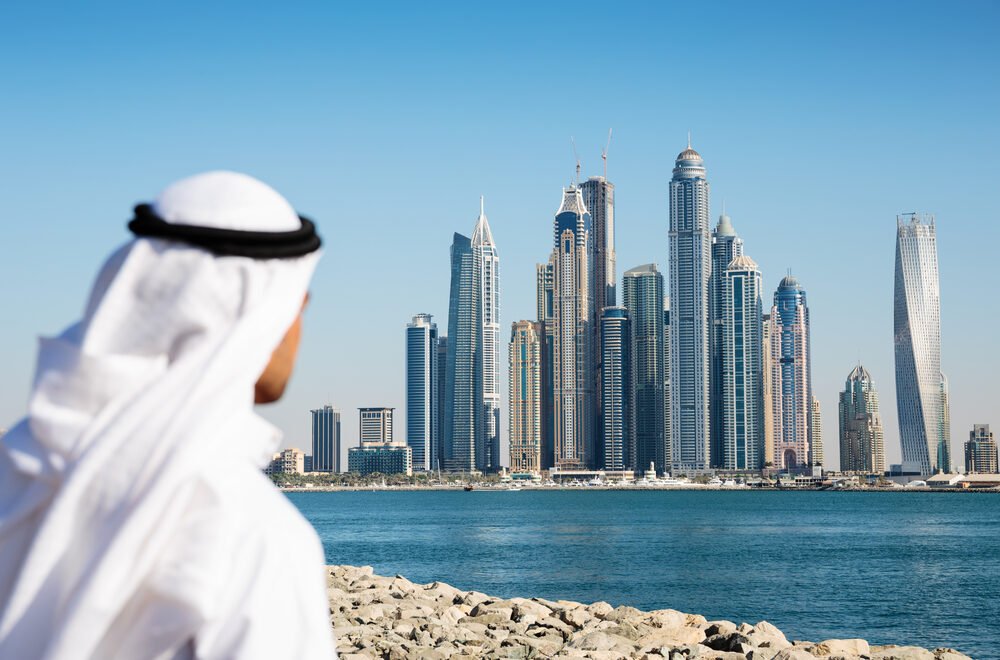Now Reading: UAE Workplaces Are Changing: Well-being Is Now the Top Priority 2025!
-
01
UAE Workplaces Are Changing: Well-being Is Now the Top Priority 2025!
UAE Workplaces Are Changing: Well-being Is Now the Top Priority 2025!

Table of Contents
In today’s fast-changing work environment, employee well-being has become more important than ever. Across the United Arab Emirates (UAE), companies are making big moves to improve the health, happiness, and satisfaction of their workers. The focus is not only on productivity anymore but also on creating workplaces where employees feel valued, motivated, and mentally strong.
This growing trend is shaping the future of business in the UAE and making the country a leader in workplace well-being in the Middle East.
Why Workplace Well-being Matters

For years, businesses measured success by profits, deadlines, and performance numbers. But experts have now proven that employee well-being directly affects these very outcomes. When workers feel happy and supported, they perform better, stay longer in their jobs, and help build stronger companies.
A 2024 report by Gallup shows that companies with high levels of employee well-being experience 23% higher profitability and 66% lower sick leave rates. These findings have made UAE companies realize that taking care of employees is not just a “nice thing to do” — it is a smart business decision.
In the UAE, this message has spread fast, especially as businesses compete to attract top talent from around the world.
Government and Corporate Initiatives Fueling Change

The UAE government has taken several steps to support workplace well-being. In 2021, the country launched the National Strategy for Wellbeing 2031, which focuses on making well-being part of all areas of life — including work.
One of the main targets of this strategy is to create more positive and supportive workplaces. This includes improving office design, promoting work-life balance, and ensuring mental health support for all employees.
In addition to government efforts, many companies in the UAE are leading the way with their own wellness programs:
- Etihad Airways has introduced flexible work hours, fitness programs, and mental health counseling for staff.
- Emirates NBD, a top bank, offers mindfulness sessions and regular stress management workshops.
- Dubai Holding launched a “Wellness Week” to promote exercise, nutrition, and stress relief activities for all its employees.
Such programs are not limited to large firms. Small and medium enterprises (SMEs) are also catching up by offering wellness packages, healthy snacks in the office, and even on-site yoga classes.
The Role of Remote Work and Flexibility
The COVID-19 pandemic changed how companies think about where and how people work. In the UAE, this shift has lasted beyond the pandemic years.
Many companies now offer hybrid working models — combining office work with remote days. This gives employees more control over their time and reduces stress from long commutes.
In fact, a recent survey by Bayt.com found that 67% of UAE professionals prefer flexible work arrangements as a way to boost their well-being. Employers are responding by providing remote working tools, digital collaboration platforms, and guidelines to ensure that remote work remains productive and balanced.
Some Dubai-based tech companies even allow employees to choose their work hours to match their personal peak performance times — an approach that has become very popular among young professionals.
Mental Health: A New Focus Area
For a long time, mental health was rarely discussed openly in the UAE’s corporate culture. But that is changing fast.
With global awareness growing around mental health challenges like anxiety, burnout, and depression, UAE companies are starting to offer real support.
A number of firms have added Employee Assistance Programs (EAPs) that include free therapy sessions, hotlines for emotional support, and stress management resources. Some organizations now have “mental health days” — extra leave days that employees can take to rest and recover mentally.
The Ministry of Health and Prevention (MOHAP) has also launched mental wellness campaigns to encourage both employers and employees to talk openly about mental health in the workplace.
Experts believe this will improve not only job satisfaction but also the overall well-being of the nation.
The Impact on Employee Retention and Productivity
The benefits of focusing on workplace well-being are already becoming clear in the UAE. Companies that invest in employee happiness report lower turnover rates and higher engagement.
A survey by Deloitte Middle East showed that 58% of UAE companies with strong wellness programs see higher employee loyalty. Workers are more likely to stay with an employer who cares for their well-being, saving companies the high cost of hiring and training new staff.
Happy, healthy workers are also more creative and energetic. They contribute better ideas, work faster, and build stronger teams. In competitive industries like finance, hospitality, and technology, this can make the difference between success and failure.
Challenges Still Remain
Despite all the progress, there are challenges. Some companies see well-being efforts as expensive or unnecessary. Smaller firms may lack the budget for large programs. Also, not all industries are able to offer remote work or flexible hours — especially in sectors like construction or retail.
There is also a need to train managers to spot signs of stress and burnout early. Many employees may hesitate to speak up about their struggles unless they feel safe and supported.
Experts say that to build a lasting culture of well-being, companies must make wellness a part of their everyday processes — not just a special event or policy.
The Future of Workplace Well-being in the UAE
Looking ahead, workplace well-being will remain a top priority for UAE businesses. Technology like AI-powered health apps, virtual therapy, and fitness tracking will become more common. More companies will redesign their offices to include quiet zones, rest areas, and even green spaces for relaxation.
The government is also expected to introduce more laws and incentives that reward companies for investing in employee health and happiness.
For job seekers, the importance of workplace well-being means that asking about wellness programs, flexibility, and mental health support will soon become as common as asking about salary.
As the UAE continues to grow as a global business hub, its focus on workplace well-being could set a powerful example for the rest of the region — and the world.
Conclusion
The UAE is not only building skyscrapers and smart cities — it is also building better, healthier workplaces. By putting employee well-being at the center of business strategy, the country is preparing for a future where both companies and their people can thrive.
As this trend grows, workers across the UAE can look forward to happier, more supportive, and more fulfilling careers.
Read More:- Shobha Realty Launches Its Most Luxurious Project Yet—Full Details Inside 2025






















